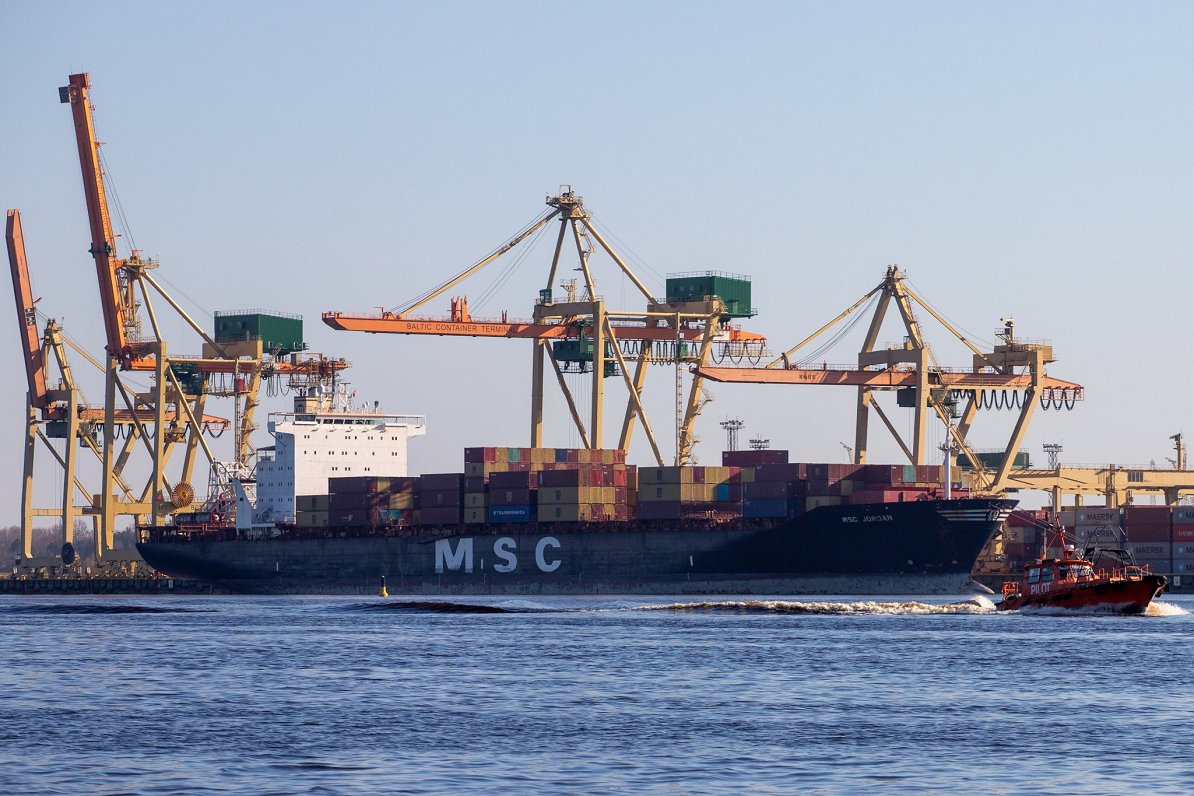According to preliminary estimates, the decline in GDP in the second quarter of the year was significantly affected by a drop in manufacturing industries of 4%, while there was an increase of 0.6% in service sectors. Thus, compared to the second quarter of last year, the drop was 0.5%, while compared to the first three months of this year, GDP decreased by 0.6%.
Economist Gundars Bērziņš links it mainly to the deterioration of Latvia's export capacity in relation to raising interest rates:
“There are several reasons for this. The first reason is that our main export markets are having a relatively hard time. Export potential in Europe is falling, and as a result Latvia's export capacity is also falling. For this reason, of course, both Europe and Latvia have an increase in costs. As a result, the global competitiveness of Latvian and European products is declining. This is such a classic situation that raising interest rates, the war in Ukraine, all this has led to our competitiveness slowly decreasing. And also wage increases, of course. This has led to our production and services becoming less competitive."
The Latvian central bank (Bank of Latvia) raised its GDP growth forecast for this year from 0.5% to 1.2% in June. In response to the question whether the latest statistics could be revised, Bank of Latvia economist Daina Paula pointed out that the statistics on GDP will be further clarified and expanded, while the Bank of Latvia will update its forecasts in September.
Commenting on the information currently available on GDP contraction and assessing the overall economic picture, Paula also highlighted the effects of raising interest rates as an important factor.
“We see that while inflation already shrank significantly during the second quarter, it is still high. Due to high inflation, restrictive monetary policy is still maintained, and consequently holds the economy in frames, especially in Latvia's trading partner countries, where the volume of loans is higher. This may affect Latvia's exports,” said Paula.
The Bank of Latvia economist also pointed out that employment expectations in the economy deteriorated in the third quarter. These have been caused by a decline in activity, for example in the manufacturing industry, mainly in the manufacture of wood products or building materials, as well as by slower exports of goods.
However, in the opinion of the Bank of Latvia expert, high inflation has not prevented spending and investing money – the amount of deposits has decreased in recent months. This was also indicated by a slightly higher turnout in the real estate market in June. On the other hand, payments data show that in the second quarter volume was almost 5% lower, mostly in the services sector, while retail sales were less rapid.
Meanwhile, retail sales turnover fell 2.3% in June compared with June 2022. Ināra Šure, representative of the Federation of Food Businesses, estimated that the drop in retail sales was felt due to the arrival of cheap imports and increased competition.
Šure noted that retail export markets have a difficult competitive edge. Overall, small businesses are hardest hit, but “others hold on and adjust their production creatively” to survive the difficult times, Šure said.






























